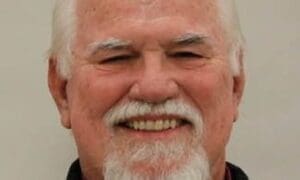Self-doubt is usually seen as a bad thing in today’s society. Every self-help guru, every motivational speaker that I can think of gives advice on becoming self-empowered. The Christian world is in on the act, too, describing God by focusing on scriptures like 2 Corinthians 1:3, “God the Father of all mercies, and the God of all comfort,” and “John 10:11, which says, “God is the good shepherd who lays down his life for his sheep.” 1 John 3:1 says, “The Sovereign God who loves us so much that he calls us his children,” and James 1:17: “The Father who gives only good gifts.”
Of course all these are true; we have a loving and merciful God. I don’t dispute that for a minute. They are also not the complete picture of how Scripture describes our relationship with God.
Think of Jesus’ calling as if it were in the want ads. It would start out sounding exciting: “Help Wanted to spread an incredible life-changing and world-changing message! I must spread the word and I need your help! First, you have to give up everything you have. Sell it, give it away. Leave your family behind without looking back. Give up your profession and follow me around wherever I go. I have no permanent home, no place to lay my head. Then you have to take up a cross and drag it around everywhere you go. You’ll be hated, spat upon, and antagonized. People will stone you and might even crucify you. And I can’t pay you a red penny.” Not too many people would respond to this want ad.
This self-empowerment message is pervasive in our society. Unfortunately, I often hear remarkably similar themes from Christian pulpits.
What’s wrong with this approach (especially if it’s Christian) is that the primary source of power is seen within human beings.
What about James 4:6? “God gives us more grace to stand against evil desires. As the Scriptures say, ‘God opposes the proud but favors the humble.’ So humble yourselves before God.”
What about Paul’s letter to Timothy? “in the last days there will be difficult times. For people will love only themselves and their money. They will be boastful and proud, scoffing at God, disobedient to their parents, and ungrateful … they will be unloving and unforgiving; they will slander others and have no self-control. They will betray friends, be reckless, and be puffed up with pride and will love pleasure rather than God.” (and while we’re reading this and identifying all the markers of things we disagree with in our modern society, here’s the kick in the pants for us Christians) “and they will act religious, but they will reject the power that could make them godly.” Are we guilty of acting religious and rejecting the power that makes us godly?
Not long ago, someone gave me some Skittles in a little jar. There was only a handful left, so when I decided to eat them, I poured them all out to discover it was more than a handful. I ate too many and I got that taste in my mouth that you get when you’ve had too much sugar, and that slightly queasy feeling to my stomach.
Maybe not exactly like Skittles, but our Christian message has become something similar. It’s like having a bowl of ice cream with fruit and nut toppings on it. It has some nutrition in it — milk, fruit, nuts — but it’s loaded with sugar. We may feel full, but too much leaves us queasy and craving for nutrition.
In today’s world, when we’re taught we’re all that we can be and then some, it’s imperative for Christians to listen to words like, “Don’t think you are better than you really are. Be honest in your evaluation of yourselves, measuring yourselves by the faith that God has given us.”
Church leaders need to be reminded about the last words of King David, “Those who rule over other people must be just, ruling in the fear of God.” Where is the fear of God in our church(es) today?
There comes a time for us to doubt ourselves. A healthy, nutritious antidote to all these Christian ice cream sundaes we enjoy eating. There comes a time for us to get serious about Bible study and let it not just light our paths, but to pierce our hearts. There comes a time for us, while we’re passing on the latest e-mail about how some atheist is petitioning to remove the words “under God” from the pledge to our national flag, for us to learn the words to the pledge to the Christian flag — “one brotherhood uniting all mankind in service and love.”
Romans says, “Don’t copy the behavior and customs of this world, but let God transform you into a new person by changing the way you think. Then you will learn to know God’s will for you, which is good and pleasing and perfect.”
The boldest step of faith we can take is to doubt ourselves and trust in God.
Sally Oakes is pastor of Bethany United Methodist Church, 607 Rivers Road, Fayetteville, GA 30214. Phone: 770-964-6999 or 770-964-6992, or e-mail [email protected].











Leave a Comment
You must be logged in to post a comment.